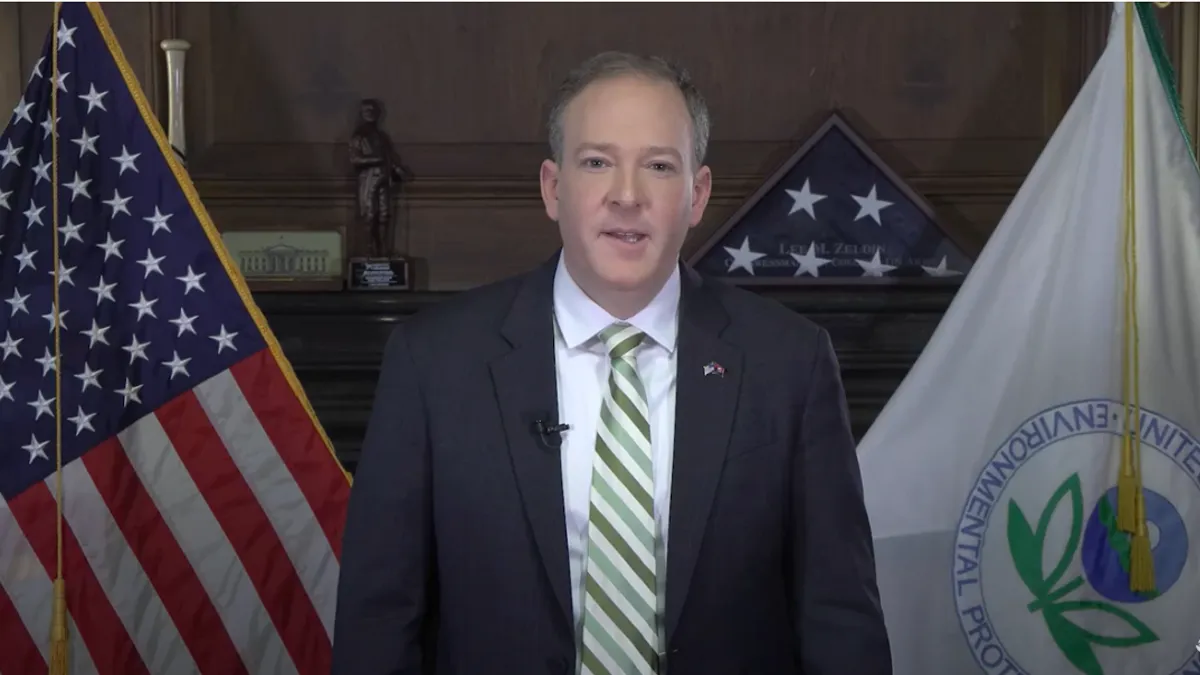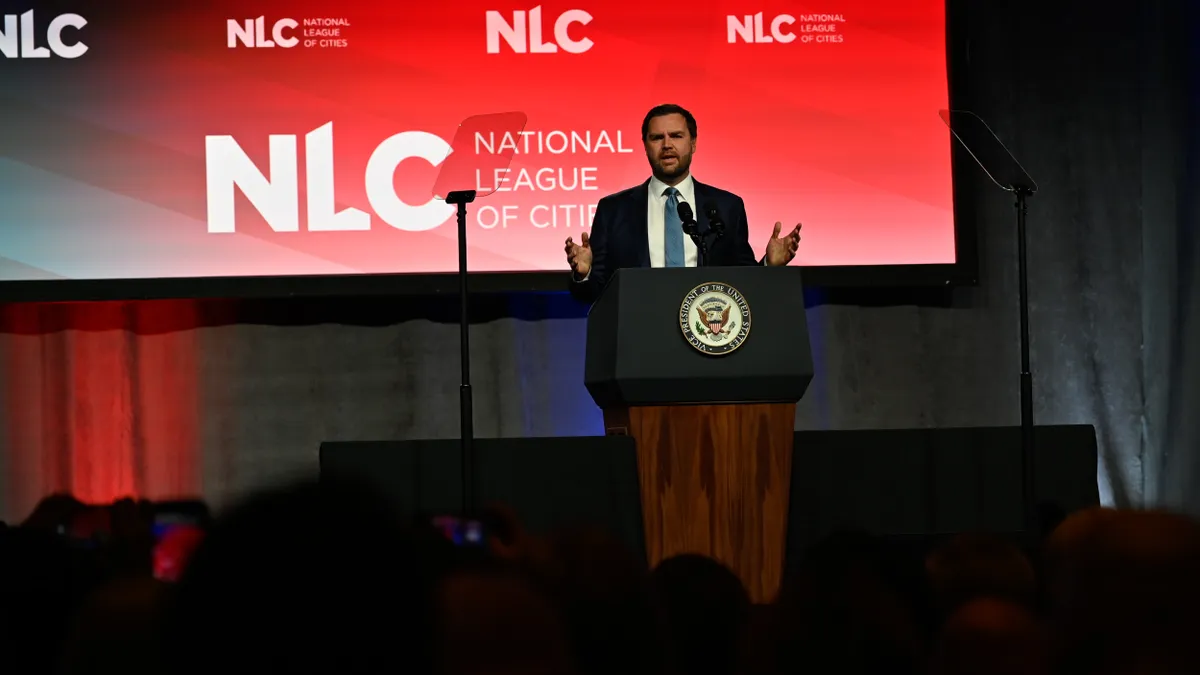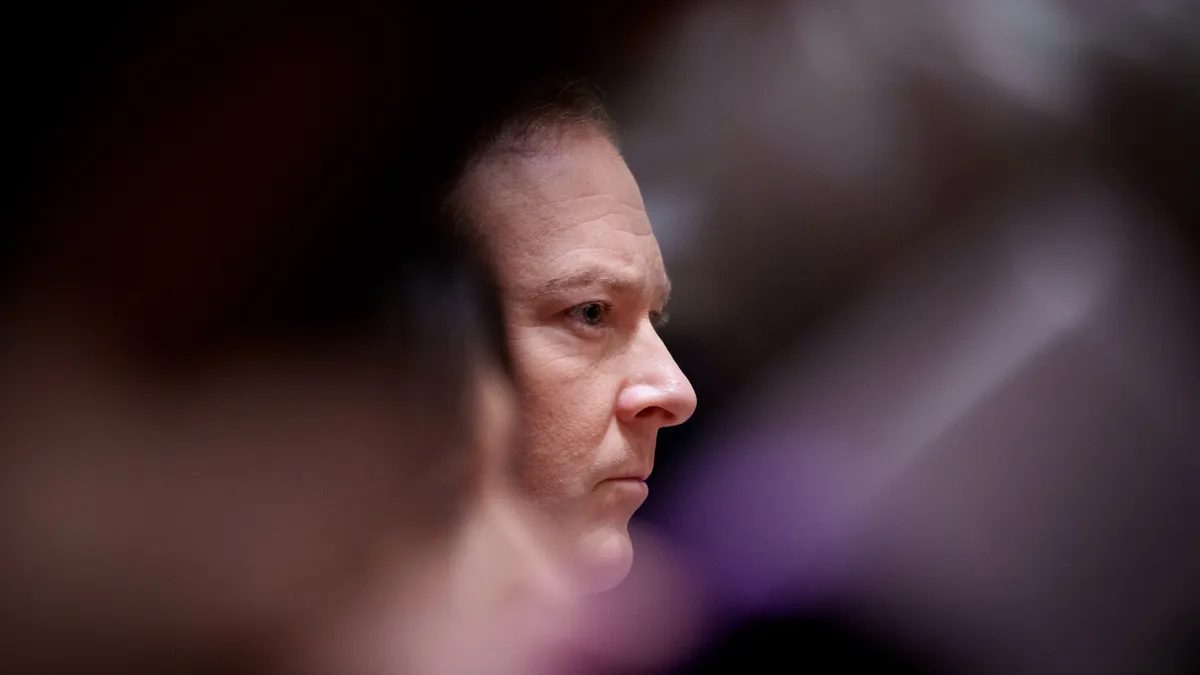As cities get smarter, they face the challenge of innovating in so many areas — transportation, communications, public safety and construction, to name a few — that many are concerned there are some areas that will be neglected.
At Smart Cities Week in Washington, DC, there was discussion of closing the digital divide, keeping housing affordable and making sure all areas are touched by the impending 5G revolution. Leaders are clearly concerned about leaving people behind as their cities get smarter.
Smart Cities Dive gathered insights — through panel discussions and interview — from seven industry leaders on where they think the urban innovation movement can improve. Do you have something to add? Let us know.
"Serving the least served. We have a poverty problem in this country ... And yet most of what we are seeing in terms of economic development is actually not going to help the poorest of the poor. It's going to make things worse for them, and this is all happening in the context of decreased investment in those that live in poverty. Proposed cuts to food stamps programs, to welfare, to health care. These are all basic necessities. This is basic survival that in some cases is not fully attainable for a very large portion of the population in supposedly the wealthiest country in the world in terms of GDP."
— Shlomy Kattan, Senior Director, Learning and Human Potential, XPRIZE
"Traffic and transportation is a big issue. Congestion and parking, too. All those things, we have regional strategies on how to resolve those problems, but the problems are very complex. I would say there needs to be more done on that side of things ... Traffic and transportation is something that needs to be solved. Public transportation is not sufficient, and urban planning needs to catch up with population growth."
— Raimundo Rodulfo, Director of Information Technology, Coral Gables, FL
"I think the biggest hurdle is ensuring that the ‘smart city’ is inclusive of everyone in that city. ‘Smart city’ is different to everyone in NYC. To some people, a smart city is being able to walk into a certain geospatial location and have your phone notify you of what awesome stores are around or what awesome events are happening around you. A ‘smart city’ to other people is that when your heat goes out and you have have a strained relationship with your landlord … [you have] sensors in low-income housing units that automatically sense when it is cold and there is no heat … So smart cities have to be thoughtful about every single person. There is no one smart city solution for one city."
— Amen Ra Mashariki, Head of Urban Analytics, Esri
"You have to do a lot of education for new residents about the technology. Most people aren't going to be familiar with these new, emerging things, and there's a learning curve. Sometimes people are scared of new things, so you really have to take the time before you introduce these projects to really engage your residents and educate them about the tech that is being proposed and be willing to listen and adapt and change your project based on their feedback."
— Chris Seidt, Director of Information Technology, Louisville, KY
"[Tech] is not part of the DNA of Baltimore City. We have about 30 different departments, and a lot of those departments, the bigger departments like Public Works, DOT, Health, they all have their own CIOs, they have their own help desk, and we can't operate like that ... When I talk about smart cities, a lot of them don't understand it and don't get it."
— Shonte Eldridge, Deputy Chief of Operations, Baltimore
"Speaking for New York City, transportation is the biggest challenge that they face. Getting a modern subway system, a modern payment system, even knowing where the trains are … Even though the subway system in NYC is [one of] the oldest in the country, it feels like it's the oldest in the country. There is a misconception I think that people have of the advancements of New York because they see the skyline, it’s glowing, but the basic infrastructure underneath the ground is really, really in trouble."
— Anthony Amato, VP of Business Services, Workforce Opportunity Services
"There's a real problem that exists, and the problem is a lack of trust and a lack of knowledge. We think that there are basically three problems that cities have becoming smarter. Those are: an inability to identify, prioritize and plan projects; and then financing."
— Philip Bane, Managing Director, Smart Cities Council




















